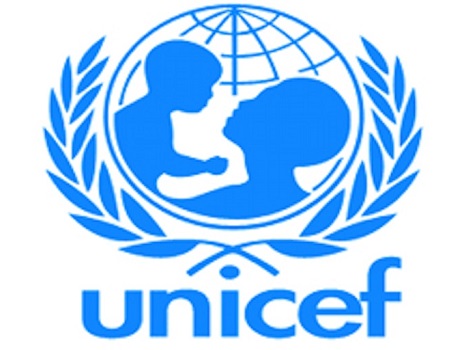[ad_1]
The United Kingdom and United Nations Children’s Fund on Thursday urged the Federal Government and other stakeholders to ensure that the Girls Education Project (GEP 3) is stepped up and replicated in all the states of the Federation in view of the gains of the programme as a tool of reducing the challenge of out-of-school children in Nigeria.
The British High Commissioner to Nigeria, Catriona Laing, speaking at the Girls’ Education Project (GEP3) closing ceremony in Abuja, revealed that the implementation of the project in six states of the Federation, namely: Katsina, Sokoto, Niger, Zamfara, Kano and Bauchi has led to the enrollment of additional 1.5 million girls in schools.
She added that reports at the end of the project have indicated that 9 girls are now in school for every 10 boys.
The Federal Government has accordingly commended UNICEF and the Foreign, Commonwealth and Development Office (FCDO) of the UK, for improving and providing access to education for the girl child through Girls’ Education Project Phase 3 (GEP3).
Minister of State for Education, Goodluck Nanah, speaking at the closing ceremony marking the end of GEP3, which commenced in Nigeria in 2012, reiterated the Buhari administration’s commitment to continue these efforts and further explore other opportunities to ensure inclusive and equitable access to quality and functional education, especially for girls.
At the national closing ceremony of GEP3 held in Abuja, the partners reported that the programme’s investment of $109 million yielded positive results in enrolling an additional 1.5 million girls into school, far exceeding the project’s target.
The attendance rate of girls in primary schools in the six states improved from 43 per cent to 70 per cent while gender parity improved from 0.73 to 0.97.
Stakeholders drawn from international development partners, civil society organisations, the Federal Ministry of Education, and the media, among others, have also applauded the gains of the Girls Education Project (GEP 3) after a decade of successful implementation.
The GEP 3 project was funded by UKaid, supported by UNICEF and implemented by stakeholders in the beneficiary states.
Other benefits identified by key players that made the project a success in Nigeria, were the instilling of structured teacher training, and exposing girls to mentorship processes such as the ‘Girls for Girls’ and ‘He for She’ concepts. It also brought about early literacy and numeracy interventions.
Saadhna Panday-Soobrayan, Chief Educationist, UNICEF Nigeria, while presenting a report on the results evaluation of GEP 3, noted that over 60,000 teachers were trained on effective implementation of GEP 3, including 8,000 teachers trained on entrepreneurship skills.
She said the conditional cash transfer aspect enabled more girls to stay in school, increased the quality of meals served to school children as well as promoted the income of households which in turn enabled parents to keep girls in schools.
In terms of enrolment and retention of girls in schools, GEP 3 proved to be an effective strategy that contributed to reducing out-of-school children, early marriages and early childbearing among girls under the age of 15.
“There is evidence of an increase in gross enrolment of girls in schools and improved gender parity across the targeted states. The gender parity index (GPI) the ratio of girls to boys enrolment increased from 0.73 (baseline) value to 0.78 (midline) and reached 0.97 by the end of the programme,” the report added.
On the impact of GEP 3, in terms of learning outcomes, the stakeholders said it presented many promising outcomes and showed that pupils who benefited from the GEP 3-RANA programme scored higher in literacy(English and Hausa) and numeracy learning assessments than their peers in the control group.
“The percentage of pupils in intervention schools achieving basic literacy in English increased from 10 per cent at the baseline assessment to 32 per cent and 40 per cent at midline and end-line assessments, respectively.
“The share of programme beneficiaries reaching the minimum proficiency in the Hausa language increased marginally from 2 per cent at the baseline to 4 per cent at the midline. During the endline assessment, girls in public primary schools outperformed their male peers in English and Hausa,” the report added.
ALSO READ FROM NIGERIAN TRIBUNE
[ad_2]








